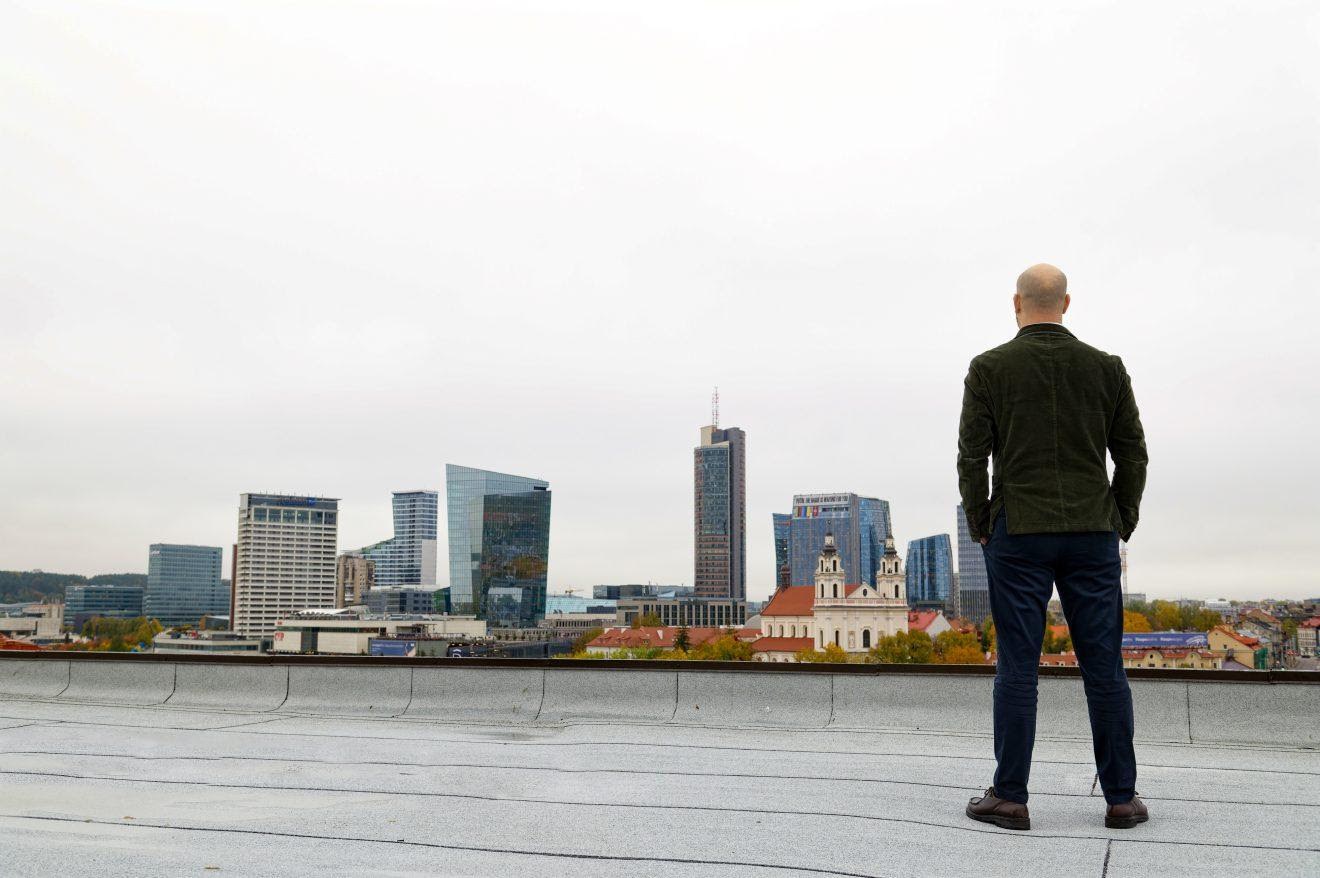| Sesto Quatrini is back at the LNOBT for the first since having served as artistic director from 2018 to 2023 to open the new season of the Lithuanian theatre with Aida. The new and innovative production by Gediminas Šeduikis has costumes by Sandra Straukaitė and choreographies by Martynas Rimeikis; among the excellent international cast is Kristine Opolais, who is back to performing the title role after a fifteen-year hiatus. |
| The opera, scheduled for eight performances (almost all sold out), will be on stage from 10 to 18 November. |
| Even though he has a notably vast repertoire, this will be the first time Maestro Quatrini will tackle this masterpiece. When asked about “his” Aida, he said: |
|
|
| “I’m delighted to be debuting Aida as guest conductor at none other than the Lithuanian National Opera, which has been “my” theatre for the last five years, in a season that will for me be particularly rich in Verdi, in which I’m going straight on to conduct Rigoletto at the Berlin Deutsche Oper and, at the end of the season, Otello at the Oper Frankfurt. Aida is without doubt an exceptional opera, which brought the golden season of Italian opera to a close, paving the way for Otello and Falstaff to follow. This timeless masterpiece contains all the complexity of musical expression considered avant-garde at the time, in contrast with its rather basic dramaturgical form revolving around the archaic structure of the dramatic love triangle (Radames, Aida, Amneris), set within the Grand-Opéra framework, with its characteristic great scenes and grand-scale casts, ballets included. Aida is an opera that is full of great contrasts: musical complexity versus theatrical simplicity; love versus jealousy; devotion, loyalty and sense of honour versus betrayal; personal attachments versus family ties; ruling class versus slaves; love for a woman versus love of the homeland; magnificence versus intimism. Verdi arranges these dichotomies masterfully in a powerfully evocative setting, seizing inspiration from exotic climes and re-inventing an Egypt that bears his personal mark: the priests’ choruses; the chanted litanies; Aida’s solitary singing and the nostalgic, archaic-flavoured melodies on the oboe; the typical dances; female choruses, the liturgical rituals; the Nile (whose waters we seem to hear in the incredible orchestration at the beginning of the third act); substantial use of augmented second intervals and modal solutions, as well as frequent changes from major to minor keys within the same melody and unrestrained use of chromaticism; and in the end he allows us to experience the sounds and atmosphere of a civilisation that has unfortunately been long buried beneath the sands of time. It is a great privilege to interpret Aida in this new production and be able to “have my own say”; it’s one of those ‘once in a lifetime’ experiences and, despite listening many times to recorded and live performances and believing that I knew it in depth, today I realise how much I had missed and am now, at last, able to enjoy to the full from the podium”. |
|
|
| Sesto Quatrini torna a dirigere alla LNOBT, per la prima volta dopo esserne stato anche direttore artistico dal 2018 al 2023, e inaugura la nuova stagione del teatro lituano con Aida, in una nuova e innovativa produzione di Gediminas Šeduikis con costumi di Sandra Straukaitė e coreografie di Martynas Rimeikis. Nell’ottimo cast internazionale spicca la presenza di Kristine Opolais che torna a interpretare il ruolo del titolo dopo quindici anni. L’opera, in programma per otto recite già praticamente sold out, sarà in scena dal 10 al 18 novembre. |
| Nonostante il suo repertorio sia notoriamente vasto, è la prima volta che il Maestro Quatrini si cimenta in questo capolavoro. Ha parlato così della “sua” Aida: |
|
|
«Sono felice di debuttare Aida come direttore ospite proprio alla Lithuanian National Opera che è stato il “mio” teatro negli ultimi cinque anni, in una stagione che sarà per me particolarmente verdiana e che mi vedrà immediatamente dopo dirigere Rigoletto alla Deutsche Oper di Berlino e, a fine stagione, Otello alla Oper Frankfurt. Aida è senza dubbio un’opera straordinaria che chiude la stagione d’oro del melodramma italiano aprendo altresì nuove strade per quelli che saranno Otello e Falstaff. In questo capolavoro immortale si avverte tutta la complessità di un linguaggio musicale al tempo all’avanguardia a contrappunto di una drammaturgia piuttosto essenziale imperniata sull’arcaico schema drammatico-amoroso triangolare (Radames, Aida, Amneris) installata dentro gli schemi del Grand-opéra, con le sue caratteristiche grandi scene di massa, balletti inclusi.
Aida è un’opera di grandi contrasti: complessità musicale contro semplicità del dramma, amore contro gelosia, fedeltà, leatà e senso dell’onore contro tradimento, affetti contro legami familiari, classe dominante contro schiavi, amore per una donna contro amore per la patria, spettacolarità contro intimismo.
Verdi incastona magistralmente tutte queste dicotomie all’interno di una cornice fortemente evocativa, afferrando le atmosfere esotiche e re-inventando un Egitto tutto suo: i cori dei sacerdoti, le litanie a cappella, il canto solitario di Aida e le nostalgiche melodie arcaizzanti dell’oboe, le danze caratteristiche, i cori femminili, la ritualità liturgica, il Nilo (di cui sembra percepirne il rumore dell’acqua all’inizio del terzo atto, tanto straordinaria è l’orchestrazione), il massiccio uso dell’intervallo di seconda aumentata e di soluzioni modali, così come il frequente cambio di modo tra maggiore e minore all’interno della stessa melodia nonché l’uso disinibito del cromatismo; e alla fine riesce a farci udire i suoni e le atmosfere di una civiltà ormai purtroppo sepolta dalla sabbie del tempo.
Interpretare Aida in una nuova produzione potendo “dire la propria” è un grande privilegio, uno di quegli appuntamenti che si sono attesi una vita intera e, pur avendola ascoltata tante volte in disco e dal vivo e avendo sempre creduto di conoscerla a fondo, oggi mi sto rendendo conto di quante cose da ascoltatore avevo tralasciato e che ora invece dal podio potrò finalmente godere appieno». |
|
|

